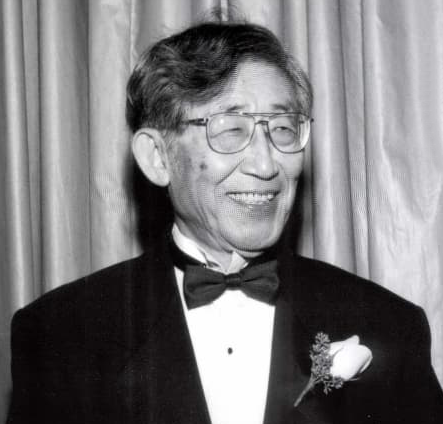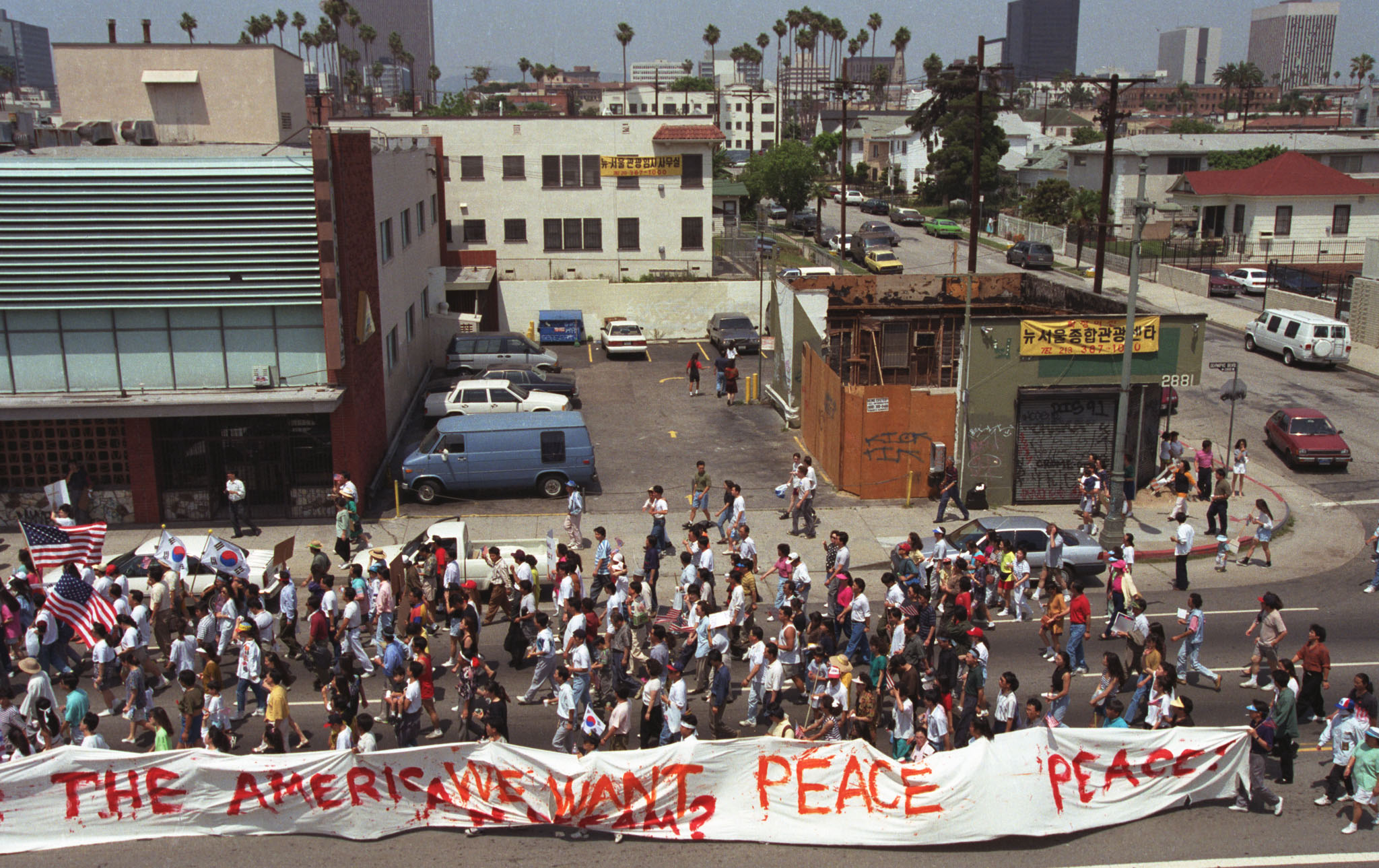Reading Sa I Gu
An archive of writings and images on the 1992 Los Angeles Civil Unrest
Sa I Gu is a term used by Korean Americans to remember the 1992 Los Angeles Civil Unrest, which is commonly referred to as the LA Riots, the Rodney King Riots, or the LA Uprising. Pronounced “sah” “ee” “goo”, Sa I Gu translates to 4-2-9 and refers to the first day (4/29/1992) of the six-day civil unrest—this is how Koreans remember important dates of events. [more]
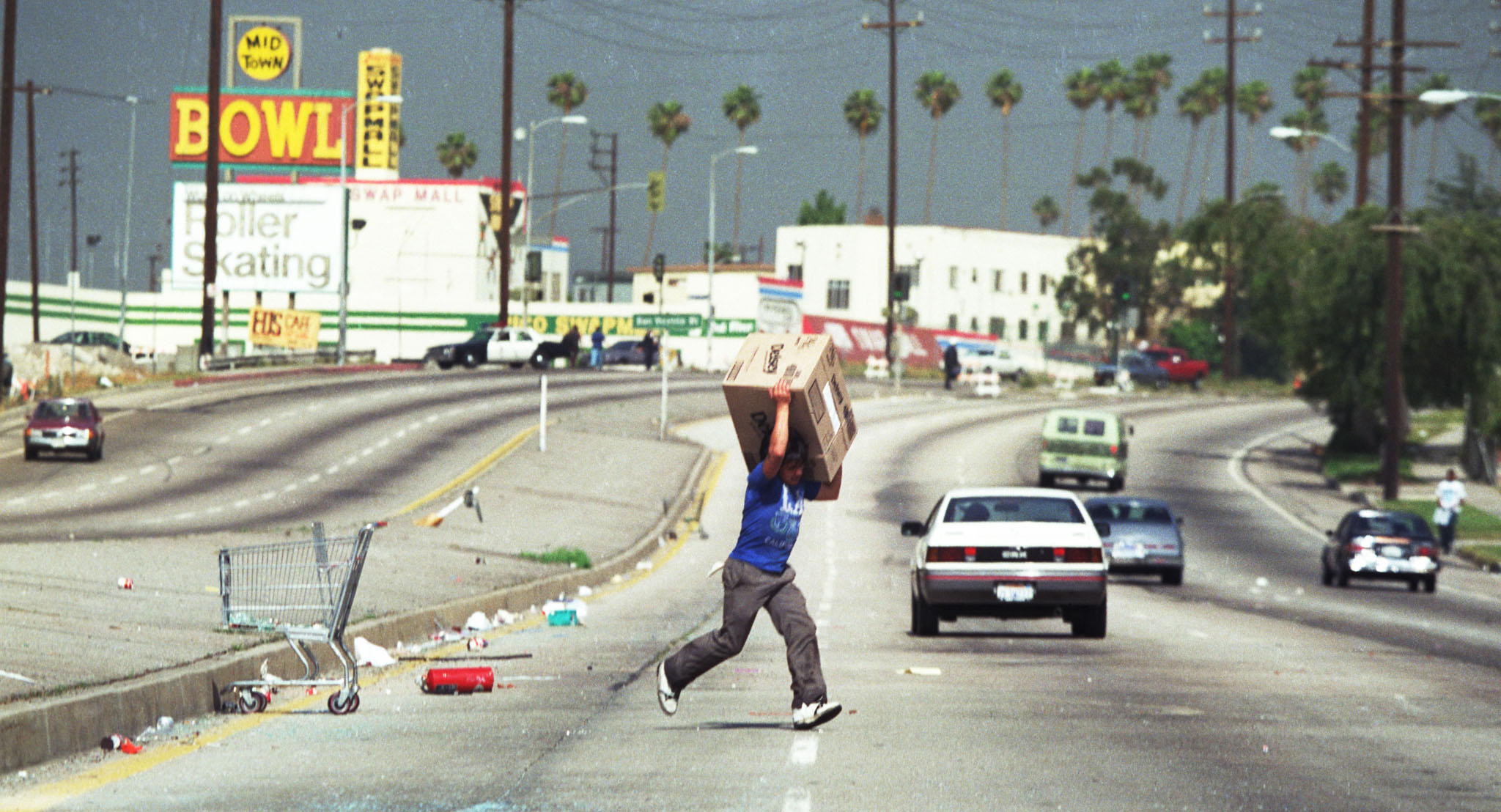
Archive
The Korea Times English Edition
This archive of selected articles from The Korea Times English Edition presents the newspaper’s coverage of Sa I Gu, what led up to it, and its lasting effects. [more]
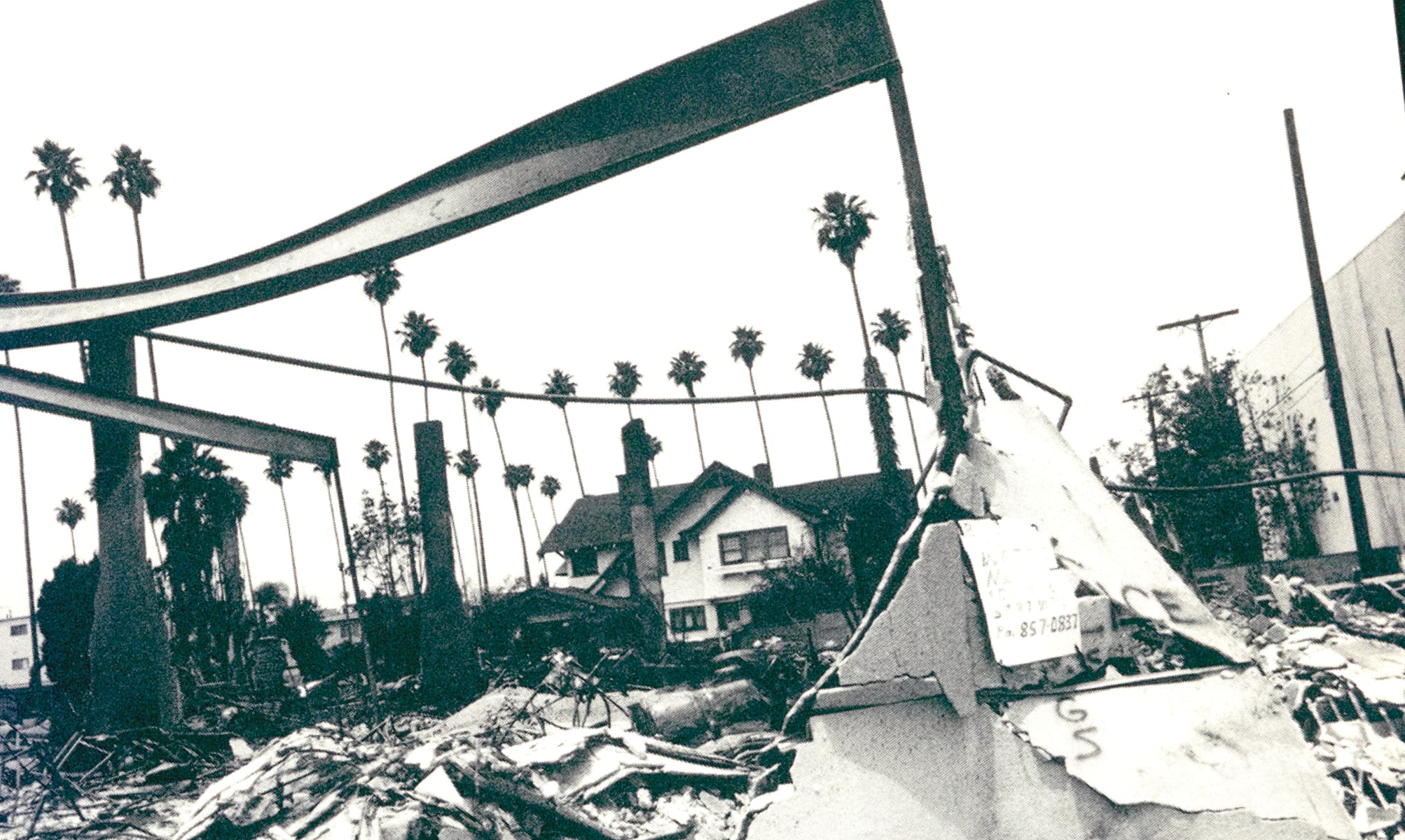
Archive
Amerasia Journal
To reflect on the impact that the L.A. civil unrest has had over the past 30 years, Amerasia Journal has collected a set of writings we have published on the event and its aftermath. [more]
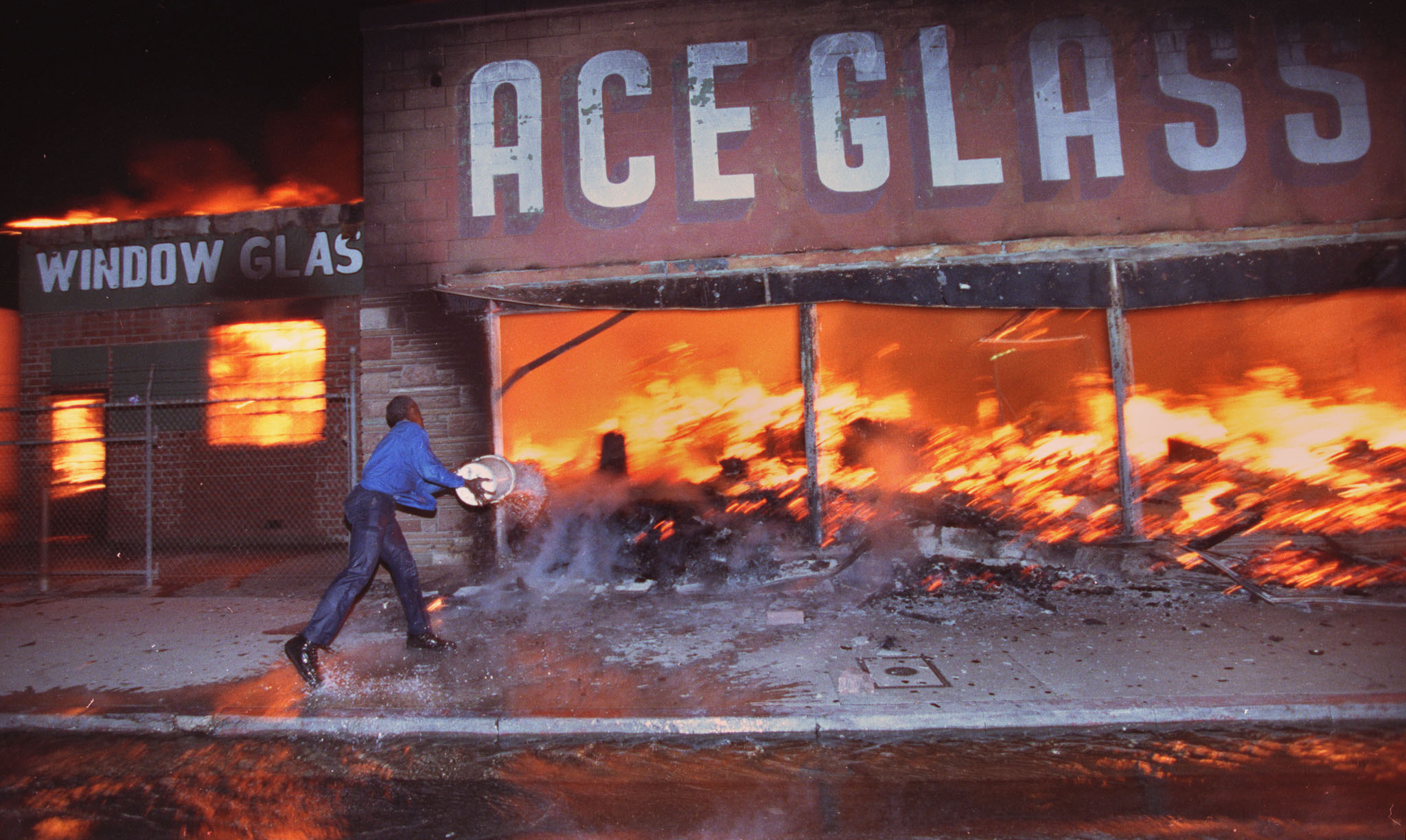
Archive
KoreAm Journal
These selected articles provides coverage of Sa I Gu from the KoreAm Journal online archives. Articles range from 1992 to 2012, reflecting on 20 years of the L.A. civil unrest. [more]
Reading Sa I Gu
This website Reading Sa I Gu is a pair to Writing Sa I Gu, a book of a collection of writings on the 1992 Los Angeles civil unrest. Here you will find out about the work of a famous and respected Korean American journalist named K. W. Lee at that time period, focusing on his articles and his role as the editor of the English-version of The Korea Times, a local Korean American newspaper in Los Angeles. [more]
Sa I Gu
Sa I Gu is a term used by Korean Americans to remember the 1992 Los Angeles Civil Unrest (commonly referred to as the LA Riots or the Rodney King Riots). Using this term to recognize the civil unrest rather than calling it by its many other names (LA Riots, Rodney King Riots, LA Uprising) means that the civil unrest is being thought and talked about through the experiences of the Korean American community. Sa I Gu was a very hard time for a lot of the Korean American community at the time, especially in Los Angeles. For much of the community, which at the time was majority non-US citizen who had recently moved to the United States, it dramatically changed their understanding of belonging in America. It shaped how the Korean American community started understanding the systems and big ideas (such as race) that shaped and led to what was experienced in Los Angeles during and after those six days of civil unrest. [more]

